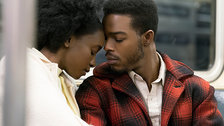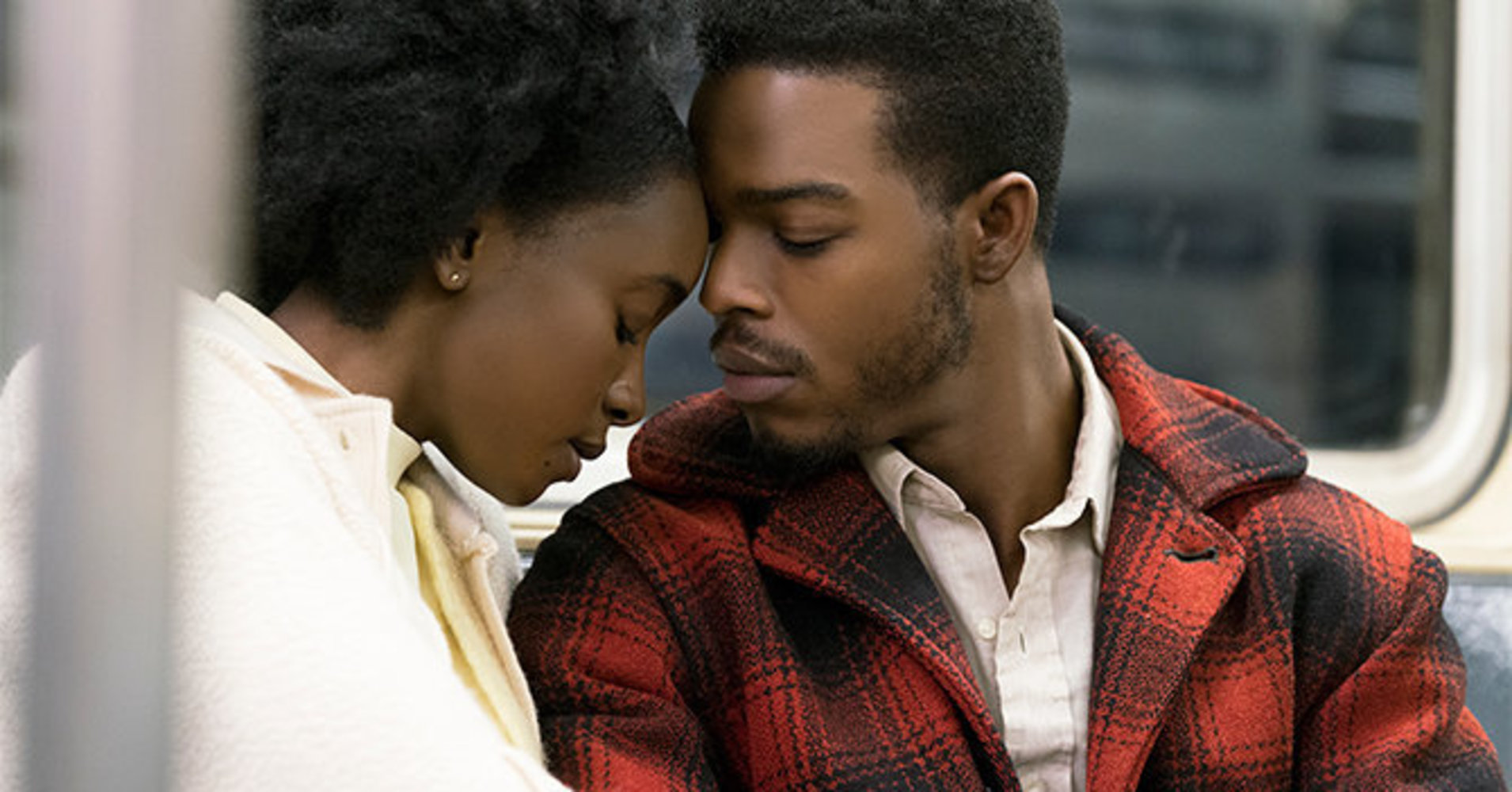[ad_1]

I often think about an experience I had in 2012, when I went to see “12 Years a Slave” for the first time. I was, I am almost positive, the only black person in the theater. Next to me sat a Desi girl, and I remember catching her eye briefly at the end of the film, as the credits rolled and we all solemnly filed out of the theater. She gave me a look of empathy, which struck me, mostly because none of the white people exiting the film made any eye contact with me at all.
This is a fragment of what it is to experience a movie that’s viscerally black in a space that isn’t black. It brings up feelings. It brings up questions. Questions like: What is going through the minds of the white folk around me as they watch this movie, as they watch this black pain? Why do I sometimes feel uncomfortable with this scenario? What is it about their gaze on the screen that makes me feel like I’m the one being watched?
These questions came up again in November, after a screening of “If Beale Street Could Talk” at the SVA Theatre in Manhattan, during a Q&A session with director Barry Jenkins. After a series of questions about the music in the film, the cinematography, the writing, a black woman in the center of the auditorium wanted to ask about his “intent, the audience and the universal versus the specific.”
“For me, this felt like a very, very black movie, and when the credits were rolling and I was sobbing, it felt almost painful to be in here with so many white people,” she said.
“It feels like, to me, something that transmits rather than explains, so for your thinking and your intent ― I know that you’re an artist and create the most beautiful emotive art that you can ― but do you ever think about that?”
Her question seemed to shift the energy in the room, if only because the optics of the auditorium, which held a diverse array of people but, indeed, many white folk, hadn’t really come up until now. Also, her question highlighted the precarious position of the black filmmaker today. It’s not just a matter of the long-standing unspoken expectation that black filmmakers must always embed a message into their art. It’s also that, even if they’re making movies now that do not cater to the white gaze or perspective, they still have to navigate an industry that historically has privileged the white perspective above all others.
But Jenkins answered, almost before she finished asking the question, “I don’t think about it.”
I think when white people make their films, they don’t think about us. And that’s totally fine. Because when Stanley Kubrick made [“2001: A Space Odyssey”], he was just making “2001.” But if some kid in Harlem, in Liberty City, in Watts, watches “2001,” he’s going to be transported in this way that he should be transported.
Now, the problem is some [white] suburban kid, in the middle of nowhere, in Kansas or Iowa, doesn’t get the same opportunity to be transported into my life. Doesn’t get the same opportunity to be transported into Chiron’s life. But when we make these movies, it’s not about giving him these opportunities, it’s not about making it for him, but it’s there. And I have no problem with him coming into the auditorium, sitting down and experiencing it. The same way that you did. So it’s not something I’m intellectually aiming for or geared towards, but I feel no kind of way about it. I think it’s kind of awesome that the movie can exist on this plane. I think this one here is aggressively black, but it doesn’t mean you can’t receive it if you’re not black.
I asked Jenkins about the exchange the next day during a one-on-one conversation, and he remembered it distinctly; it had stayed with him.
“As I was leaving, I got in the car, I was still thinking about that question,” he said. “I was still thinking about that question.”
This idea of who gets to create black art, who gets to receive black art and how they get to receive it has been grappled with over and over, in many ways ― from Steve McQueen’s “12 Years a Slave” to the white-directed and -written “The Help” to even Jenkins’ Oscar-winning last movie, “Moonlight.” People get anxious about black pain being offered up as fodder for white spectatorship. But “Beale Street,” which is based on the James Baldwin novel and which Jenkins described as “aggressively black,” created no such tension for the director.
“If the film was engineered expressly for white people to experience black pain, then I would feel a certain kind of way,” he said. “Being the creator of the piece, I know that’s not my intent. Having read the novel, I feel like that wasn’t Mr. Baldwin’s intent. I think because of that, I don’t feel any kind of way about the experience of a shared audience experiencing the work.”
This idea of who gets to create black art, who gets to receive black art and how they get to receive it has been grappled with over and over, in many ways.
And yet there’s still this expectation for the filmmaker of color to be aware, to think about the ways their narratives will be interpreted. Jenkins said at the SVA screening that he insisted on giving the story a happier, if bittersweet, ending, different from Baldwin’s book, expressly because he wanted to combat the idea of yet another broken black family onscreen.
“I wanted to somehow, I don’t know, go out and sit next to her while she watched the film,” he said of the woman who asked the question at the SVA event. But I think in wanting to do that, it kind of confirms the issue or the issue that she was scratching at. But I don’t know if there’s anything I can do about it. Because for decades, we have had to sit in audiences with white people and watch their pain. And in a certain way, because of that, we have been able to empathize with their pain far longer than they’ve had to empathize with ours. And so in a certain way, I still don’t think it’s a feature of anything I’m doing. … I don’t have a good answer. Just like I didn’t have a good answer for it last night.”
And there really isn’t an answer to the question, How do you make a black film for black people without also exposing it to the scrutiny of race tourists? But it’s that tension, that discomfort that Jenkins refuses to shy away from. He said experiences like the one described by the young woman at the screening are valuable and also provocative.
“It’s extremely provocative because it’s not that this is the first film that’s made her feel this way,” Jenkins explained.
“I think what she was saying [was], this is a film that is so viscerally black that she was shocked that there was a white person there to sit through it in the way that she was. That was what I heard in the question. And because of that, she felt incredibly uncomfortable,” he said. “And so maybe as the film goes out into the world, the experience that she had, more folks are going to have. What does that do? What does that do? You know?”
[ad_2]
Source link

